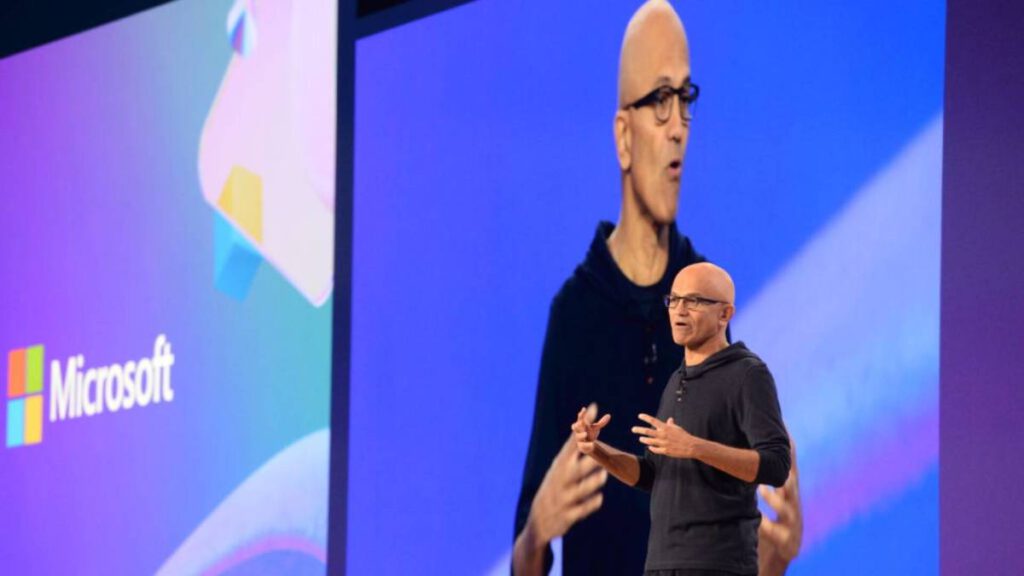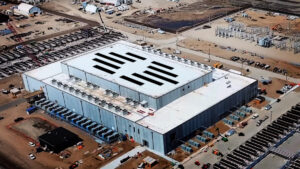The AI gold rush is running headfirst into some severe bottlenecks.
Goldman Sachs expects U.S. data-center power demand to surge by a whopping 165% by 2030, while Morgan Stanley projects $3 trillion in AI data-center capex by 2029. GPUs remain a bottleneck, with traditional hyperscalers struggling to close the gap.
For Microsoft (MSFT) , the urgency is visible.
Some of its popular AI products, including Copilot and consumer AI assistants, continue adding millions of users, but server growth hasn’t been keeping pace. In a race this quick, capacity isn’t about just infrastructure; it’s also about strategy.
💵💰Don’t miss the move: Subscribe to TheStreet’s free daily newsletter💰💵
That’s precisely why neoclouds are on the rise.
Unlike traditional hyperscalers, they’re more efficient, GPU-native, and tailor-made to deliver dedicated blocks of compute at high speed. Perhaps the most significant player in the niche space is Nebius (NBIS) , which has come racing off the blocks.
Its stock has surged over 300% this year on bets that it could plug critical capacity gaps. Now, Microsoft is leaning heavily on Nebius in a significant way to alleviate its AI crunch, underscoring just how high the stakes have become.
Image source: Sokolow/picture alliance via Getty Images
Microsoft leans on Nebius to ease AI crunch
Microsoft is leaning harder on Necloud cloud partners to sustain its competitive edge in AI.
More Tech Stocks:
- Is Oklo a high-risk, high-reward investment?
- Nvidia’s deal with OpenAI ‘looks a lot like financial theater’
- Quantum computing companies looking to finance the future
Fresh reporting from Bloomberg adds more color to its earlier five-year agreement with Nebius, showing how the massive $17.4 billion pact (expandable to $19.4 billion) is being deployed.
Related: Jim Cramer has 5-word message on government shutdown, stocks
According to the report, Microsoft’s deal with Nebius offers computing power to internal teams building large language models and a consumer AI assistant.
That allocation highlights the pressure on Microsoft’s capacity around generative AI, leaving it dependent on smaller operators that can quickly establish GPU-rich infrastructure. The arrangement also secures access to over 100,000 of Nvidia’s latest GB300 chips.
Recap of the Microsoft/Nebius deal:
- Size & term: Five-year contract worth a whopping $17.4 billion, expandable to $19.4 billion.
- Purpose: AI compute for internal LLMs and Microsoft’s consumer AI assistant.
- Hardware: Access to over 100,000 Nvidia GB300 chips.
- Where/when: Capacity from Nebius’s Vineland, NJ data center, starting late this year.
- Structure: GPU services bought from Nebius, with the option to scale.
The Nebius agreement is part of the over $33 billion that Microsoft has committed to neoclouds, including CoreWeave, Nscale, and Lambda.
Scott Guthrie, who oversees the company’s cloud arm, put it bluntly: “We are in very much land-grab mode in the AI space. We’ve made the decision that we don’t want to be constrained in terms of capacity.”
By contrast, Amazon and Google-parent Alphabet have been relatively sluggish in embracing neocloud partners, shedding light on how aggressively Microsoft is racing to secure scarce GPU supply.
Neoclouds surge as AI demand outpaces hyperscalers
Neoclouds have become a pressure valve for the unrelenting AI boom.
Unlike typical hyperscalers like Microsoft Azure, Amazon Web Services, or Google Cloud, these businesses offer more efficient, GPU-first services that are designed to deliver dedicated, high-performance capacity.
Related: Legendary fund manager drops bombshell call on Nvidia stock
So outfits like CoreWeave and Nebius focus are razor-focused on spinning up racks of Nvidia’s latest GPUs in power-optimized data centers that are customized for AI training. Neoclouds, with leaner operations and flexible financing, are filling the gap for AI labs and big tech in scaling without waiting years for new hyperscaler buildouts.
Moreover, their outlook hinges on backlog and aggressive guidance.
CoreWeave, for instance, reported a hefty $30.1 billion backlog, led by 33 data centers and Nvidia’s Blackwell rollout. Also, multiyear deals with Meta and OpenAI offer stronger visibility deep into the decade.
Nebius, while at an earlier stage, is scaling fast as well. Q2 sales jumped 625% year-over-year to $105 million, with ARR lifted to $900 million to $1.1 billion for the year-end.
On top of that, its five-year, $17.4 billion Microsoft agreement (expandable to $19.4 billion) effectively sets the stage for major revenue inflection in 2026.
Related: Microsoft’s harsh decision frustrates gamers




